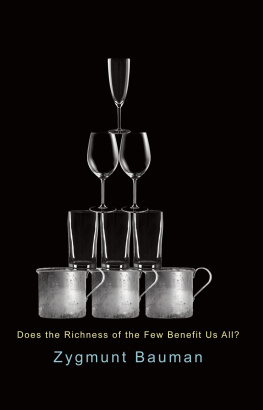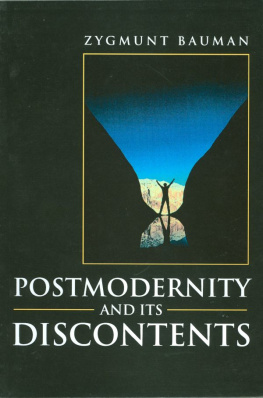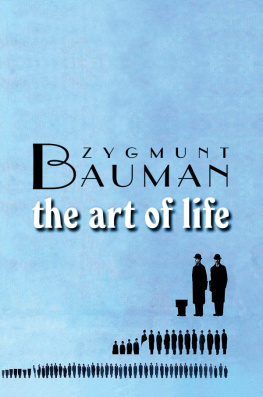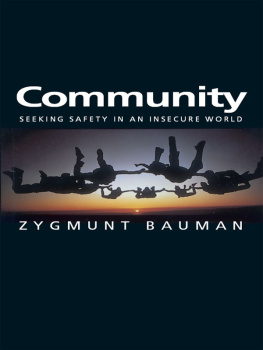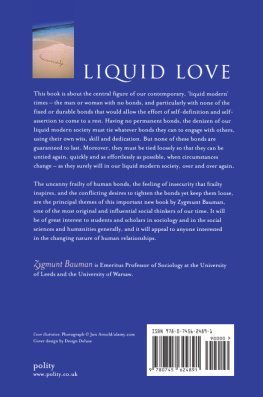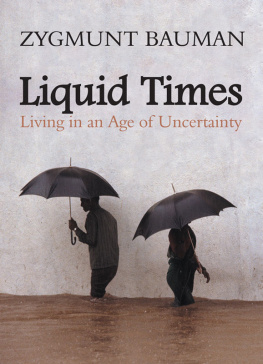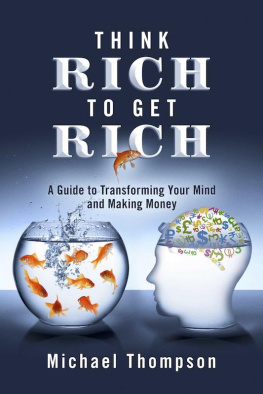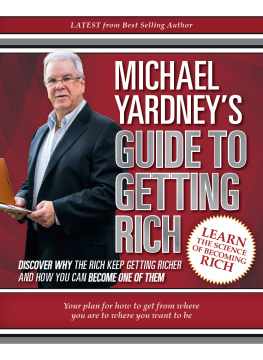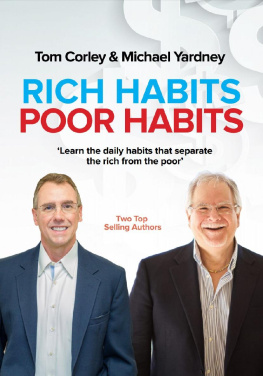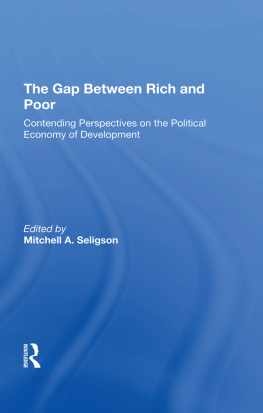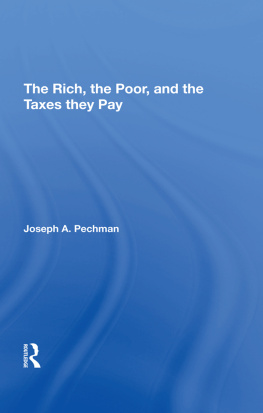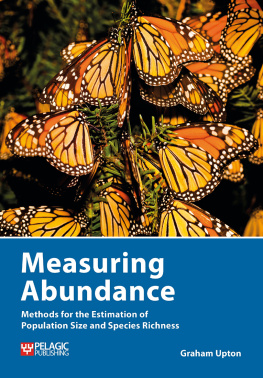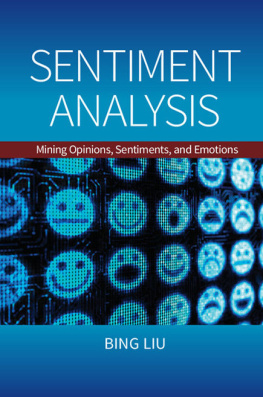
Table of Contents
Copyright Zygmunt Bauman 2013
The right of Zygmunt Bauman to be identified as Author of this Work has been asserted in accordance with the UK Copyright, Designs and Patents Act 1988.
First published in 2013 by Polity Press
Polity Press
65 Bridge Street
Cambridge CB2 1UR, UK
Polity Press
350 Main Street
Malden, MA 02148, USA
All rights reserved. Except for the quotation of short passages for the purpose of criticism and review, no part of this publication may be reproduced, stored in a retrieval system, or transmitted, in any form or by any means, electronic, mechanical, photocopying, recording or otherwise, without the prior permission of the publisher.
ISBN-13: 978-0-7456-7108-6
ISBN-13: 978-0-7456-7109-3(pb)
ISBN-13: 978-0-7456-7921-1 (epub)
ISBN-13: 978-0-7456-7920-4 (mobi)
A catalogue record for this book is available from the British Library.
The publisher has used its best endeavours to ensure that the URLs for external websites referred to in this book are correct and active at the time of going to press. However, the publisher has no responsibility for the websites and can make no guarantee that a site will remain live or that the content is or will remain appropriate.
Every effort has been made to trace all copyright holders, but if any have been inadvertently overlooked the publisher will be pleased to include any necessary credits in any subsequent reprint or edition.
For further information on Polity, visit our website: www.politybooks.com
For the man who has will be given more, till he has enough to spare; And the man who has not will forfeit even what he has.
(Matthew 13.12)
Wherever there is great property, there is great inequality. For one very rich man, there must be at least five hundred poor.
(Adam Smith)
This disposition to admire, and almost to worship, the rich and the powerful, and to despise, or, at least, to neglect persons of poor and mean condition is the great and most universal cause of the corruption of our moral sentiments.
(Adam Smith)
do not banish reason
For inequality; but let your reason serve
To make the truth appear where it seems hid
And hide the false seems true.
(Shakespeare, Measure for Measure)
Introduction
A recent study by the World Institute for Development Economics Research at the United Nations University reports that the richest 1 per cent of adults owned 40 per cent of global assets in the year 2000, and that the richest 10 per cent of adults accounted for 85 per cent of the total wealth of the world. The bottom half of the world's adult population owned 1 per cent of global wealth. This, though, is only a snapshot of an ongoing process. Even more bad news for human equality, and so also for the quality of life of all of us, is lining up daily, and getting ever worse.
Social inequalities would have made the inventors of the modern project blush with shame conclude Michel Rocard, Dominique Bourg and Floran Augagner in their article Human species, endangered in Le Monde of 3 April 2011. In the era of the Enlightenment, in the lifetimes of Francis Bacon, Descartes or even Hegel, the standard of living anywhere on earth was never more than twice as high as in its poorest region. Today, the richest country, Qatar, boasts an income per head 428 times higher than that in the poorest, Zimbabwe. And these are, let's not forget, comparisons between averages and so akin to the facetious recipe for hare-and-horsemeat pt: take one hare and one horse
The stubborn persistence of poverty on a planet in the throes of economic growth fundamentalism is enough to make thoughtful people pause and reflect on the direct as much as the collateral casualties of that redistribution of wealth. The deepening abyss separating the poor and prospectless from the well-off, sanguine, self-confident and boisterous an abyss of a depth already exceeding the ability of any but the most muscular and the least scrupulous hiker to scale is an obvious reason to be gravely concerned. As Rocard and his co-authors warn, the prime victim of deepening inequality will be democracy, as the increasingly scarce, rare and inaccessible paraphernalia of survival and an acceptable life become the object of cut-throat rivalry (and perhaps wars) between the provided-for and the abandoned needy.
One of the basic moral justifications for free market economics, namely that the pursuit of individual profit also provides the best mechanism for the pursuit of the common good, has thereby been cast in doubt and all but belied. In the two decades preceding the start of the latest financial crisis, across the great bulk of the nations in the OECD (the Organisation for Economic Co-operation and Development, which presents itself on its website as an association of thirty-four member states that span the globe, from North and South America to Europe and the Asia-Pacific region. They include many of the world's most advanced countries but also emerging countries like Mexico, Chile and Turkey. We also work closely with emerging giants like China, India and Brazil and developing economies in Africa, Asia, Latin America and the Caribbean. Together, our goal continues to be to build a stronger, cleaner, fairer world), the real household incomes for the top 10 per cent grew much faster than for the poorest 10 per cent. In some countries, real incomes of those at the bottom have actually fallen. Income disparities have therefore widened markedly. In the US, the average income of the top 10 per cent is now 14 times the bottom 10 per cent is the admission of Jeremy Warner, assistant editor of the Daily Telegraph, one of the newspapers with long records of enthusiastic affirmation of the dexterity and proficiency of the invisible hand of markets, trusted by the editors and subscribers alike to resolve as many problems as markets create (if not more). And he adds: Growing income inequality, though obviously undesirable from a social perspective, doesn't necessarily matter if everyone is getting richer together. But when most of the rewards of economic progress are going to a comparatively small number of already high income earners, which is what's been happening in practice, there's plainly going to be a problem.
That admission, gingerly made and half-hearted as it sounds, and feeling no more than half-true as it in fact is, arrives on the crest of a rising tide of research findings and official statistics documenting the fast-growing distance that separates those at the top from those at the bottom of the social hierarchy. In jarring opposition to political pronouncements intended to be recycled into popular belief no longer reflected upon, questioned or checked the wealth amassed at the top of society has blatantly failed to trickle down and make the rest of us any richer or feel more secure and more optimistic about our and our children's future, or any happier
In human history, inequality with its all too visible propensity for extended and accelerated self-reproduction is hardly news (as testified by the quotation from St Matthew's Gospel at the beginning of this book). And yet recently the perennial issue of inequality, as well as of its causes and consequences, has been brought back into the focus of public attention, making it into a topic of passionate debates, by quite novel, spectacular, shocking and eye-opening departures.

